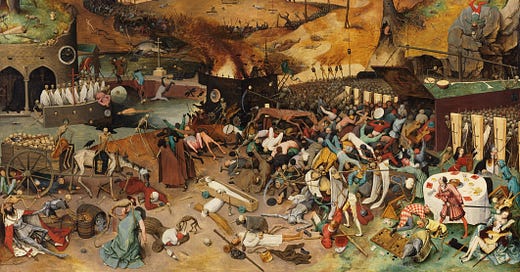Historian M. T. Anderson compares the ‘Great Resignation’ to the aftermath of the Black Death in In Medieval Europe, a Pandemic Changed Work Forever. Can It Happen Again?, when Europe lost between a third and half its population:
Workers of all kinds — farm laborers, artisans in the cities, even poor parish priests who’d had to minister to the dying — looked at their lives once the pandemic had eased and reassessed what they were worth. They saw a system that was tilted impossibly against them.
In England, for example, around half the population was legally tied to the land in serfdom, forced to labor for their local landlord. But suddenly, these workers seemed to have some bargaining power. No longer were they obligated to put up with unreasonable demands. No longer were their employers able to take them for granted.
They needed higher wages, for one thing, to deal with the runaway inflation that followed the plague: In England, despite the drop in the cost of some basic commodities like grain, overall prices for consumer goods rose about 27 percent from 1348 to 1350. Laborers complained they couldn’t afford the bare necessities — and if they weren’t paid what they demanded, they walked away from the plow, fled their landlords’ villages, and went off in search of a better deal.
Sound familiar?
Keep reading with a 7-day free trial
Subscribe to Work Futures to keep reading this post and get 7 days of free access to the full post archives.



